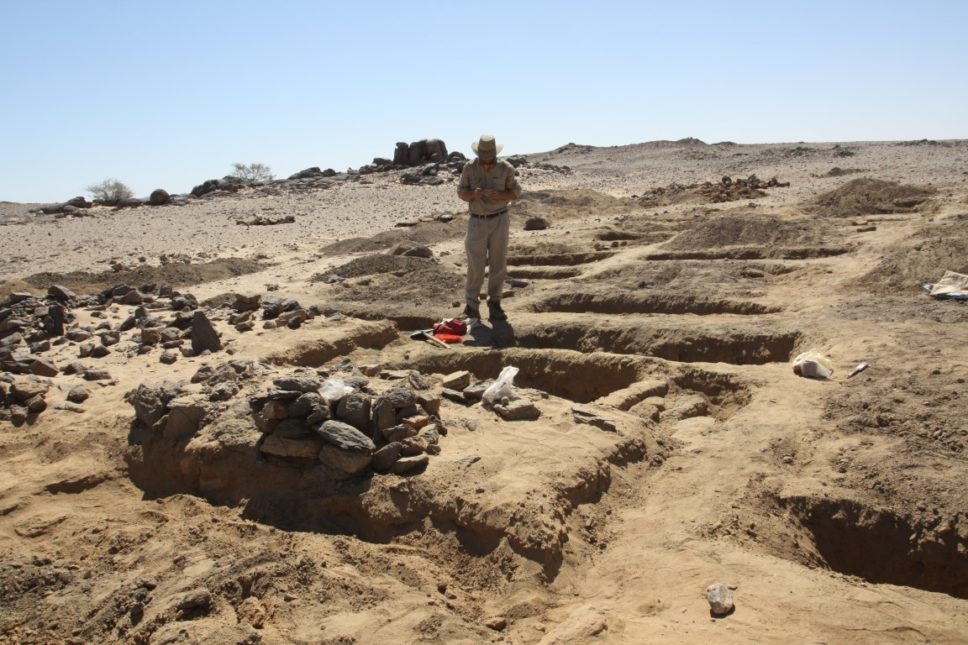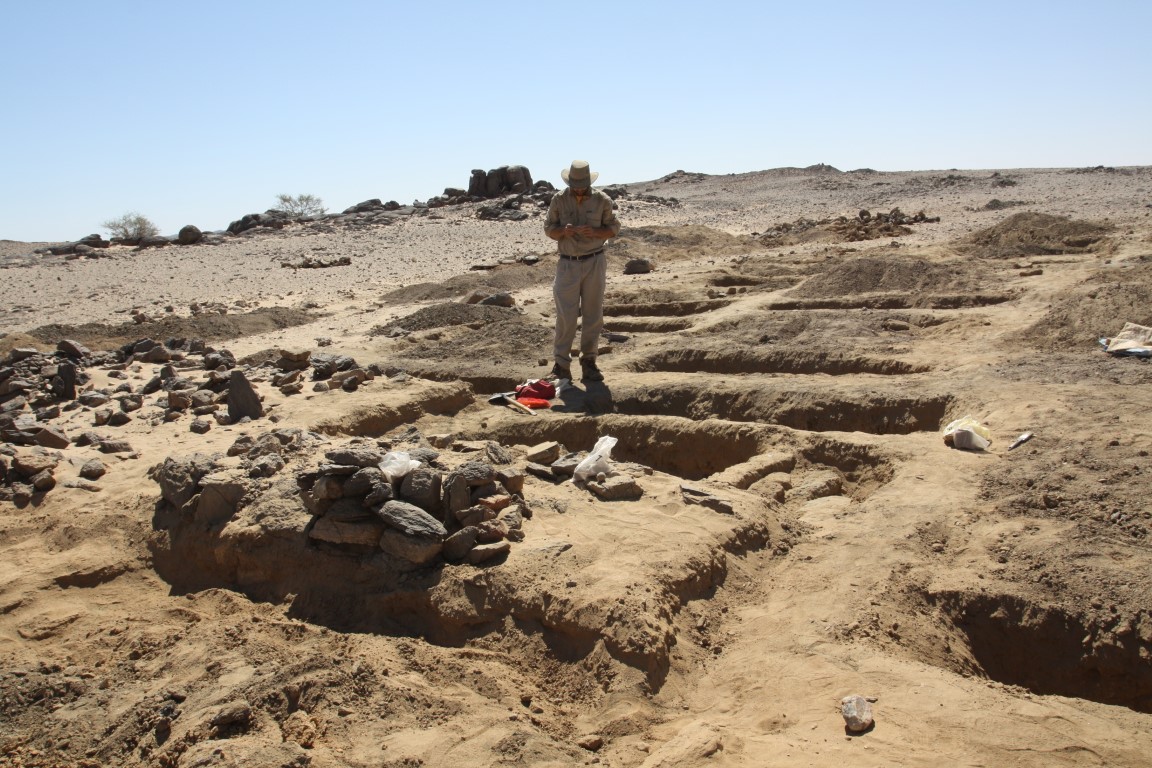As part of the Ghazali project in Sudan, directed by Dr. Artur Obłuski from the Polish Centre of Mediterranean Archaeology, University of Warsaw, Dr. Robert Stark, and colleagues from the University of Warsaw, the David Reich Lab at Harvard University, and the National Corporation for Antiquities and Museums of Sudan (NCAM) were awarded a one-year National Geographic Society (NGS) Exploration Grant.
Their project (NGS-67810R-20) is entitled, “The People of Ghazali: Tracing the Human Experience in a Nubian Desert Monastic Community (680-1275 CE)”. It will investigate genetic diversity at the medieval Nubian monastic site of Ghazali, focusing on aDNA sampling of individuals interred within the four cemeteries identified at this site to trace potential relatedness and biological backgrounds of the individuals who came to reside at Ghazali and were ultimately buried there. Such research will provide specific information about the populational history of Ghazali itself and will contribute to broader ongoing questions about genetic diversity over time and space in the continent of Africa.
According to Dr Stark, many questions remain about the background of the individuals who lived at Ghazali. – Given the location of the Ghazali monastery within the Bayuda desert and potential influences from Egyptian monasticism and other regions, it has long been argued that the Ghazali monastery was likely populated by a mixture of local and non-local individuals. While genetic background does not directly attest to mobility, aDNA assessments of genetic traits present among individuals at Ghazali will help to shed light on broader genetic diversity in the region, providing insights to population interactions over time within medieval Sudan – says the anthropologist.
Along with the genetic research to be conducted, public engagement events in Khartoum will be a key component of the NGS Exploration Grant project. These public events will highlight the bioarchaeological research that has been conducted at Ghazali and will provide hands on opportunities for students and interested individuals to engage with a number of the methods utilized to answer questions about the biological characteristics and backgrounds of individuals who resided at Ghazali.
Previous PCMA UW research at Ghazali focused not only on the excavations of the monastic complex but also on a site presentation scheme, enabling access to the excavated monuments, both on-site and on-line, by creating a virtual tour of the monasteries: http://nubianmonasteries.uw.edu.pl/virtual-tour/
The projects were financed by the Qatar-Sudan Archaeological Project and the Polish National Science Centre grant Sonata 7 (2014/13/D/HS3/03829).
Read more on the research in Ghazali or download the press release.


